Share
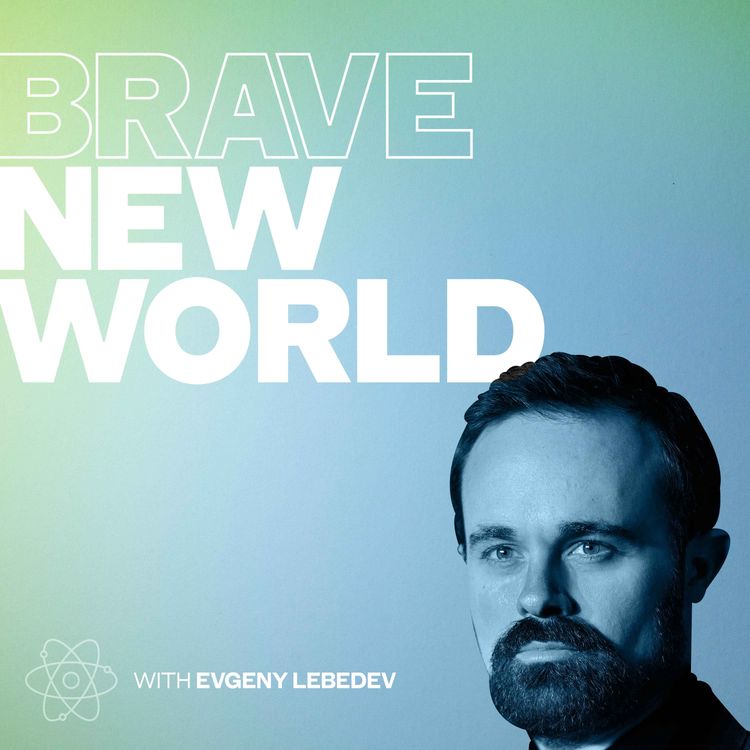
Brave New World
David Nutt and Amanda Feilding: The Psychedelic Renaissance
Could psychedelics be used to help tackle mental health issues like depression and addiction? In this episode of Brave New World, Evgeny Lebedev speaks to Professor David Nutt, one the leading researchers in this controversial field. His former student, now professor, Robin Carhart-Harris, describes the impact of his study comparing psychedelic medicine with mainstream medicine. Evgeny also meets pioneers like Amanda Feilding who developed the first images of the brain on LSD, and the psychologist Bill Richards who explains his research into consciousness. He also speaks to Buzzfeed journalist Lara Parker who used ketamine assisted therapy to treat clinical depression. In this episode:
- How do psychedelics really affect the brain?
- Why David Nutt says they can “disrupt the thought loops” behind depression
- How effective is ketamine assisted therapy?
- Robin Carhart-Harris describes his work with ‘magic mushrooms’
- Why Amanda Feilding set up the Foundation to Further Consciousness
- Bill Richardson on why ‘mystical consciousness’ is becoming “a scientific term”
If you enjoyed this episode, please leave us a review and hit the follow button on your podcast provider so you never miss an episode of Brave New World.
More episodes
View all episodes
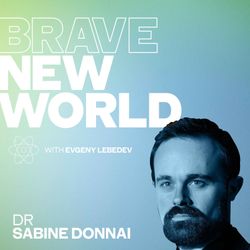
7. Dr Sabine Donnai on Mapping the Microbiome and the Secrets to Longevity
01:01:35||Season 4, Ep. 7For this episode of Brave New World, Evgeny is joined by Dr Sabine Donnai, a physician specialising in precision medicine, preventive health and the founder of Viavi Healthcare. Together, they explore brain health beyond standard scans, discussing how gut function, inflammation, environmental exposure, and stress interact over time. Drawing on Evgeny’s own test results, Sabine uses her trademark pragmatism to explain why she believes long-term cognitive resilience starts with fixing the basics - particularly the gut – and gives the listener some touchstone takeaways to improve their daily health. For anyone interested in practical measures you can install in your day-to-day, this episode is for you.This episode was produced by Message Heard and The Standard.Producer: Florence de SchlichtingProduction Coordinator: James CoxProduction Manager: Kirsty McLeanVideo Editor: Nani WenaniThe London Standard team:Joe BromleyWill Rogers-Coltman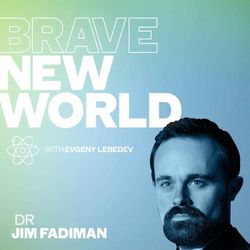
6. Dr Jim Fadiman: The 'Father of Microdosing' on Psychedelics’ Second Act
32:30||Season 4, Ep. 6For this episode of Brave New World, Evgeny is joined by psychologist, author, and researcher Dr Jim Fadiman, a central figure in the modern understanding of psychedelics, who also goes by the “father of microdosing”.Drawing on decades of research and thousands of user reports, the conversation traces the history of psychedelics - from early scientific study in the 1950s and 60s, through prohibition, to today’s renewed interest in clinical and psychiatric settings. Jim discusses why most formal research has focused on high doses, how observational reports have shaped microdosing research, where evidence is strongest and still emerging.Evgeny and Jim look ahead to the future of psychedelics in medicine, the balance between scientific caution and public interest, and what a first step might look like for someone curious but sceptical.This episode was produced by Message Heard and The Standard.Producer: Florence de SchlichtingProduction Coordinator: James CoxProduction Manager: Kirsty McLeanVideo Editor: Nani WenaniThe Standard team: Joe Bromley Will Rogers-Coltman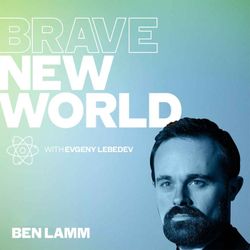
5. Ben Lamm on Colossal's De-Extinction Mission — From Dire Wolves to Woolly Mammoths
01:06:37||Season 4, Ep. 5Did you ever think you’d live to see woolly mammoths return? For Episode Five of Brave New World, Evgeny is joined by Ben Lamm, CEO and co-founder of the most forward thinking de-extinction company on the planet, Colossal Biosciences.Since Ben co-founded the Austin based biotech start-up with legendary geneticist George Church in 2021, Colossal has consistently made headlines with their Jurassic Park-esque breakthroughs. In this conversation, Ben goes into the science behind “bringing back” an extinct species, how sci-fi and speculative fiction has inspired Colossal’s work, and the incredible implications de-extinction could have for conservation and the planet.This episode was produced by Message Heard and The Standard.Producer: Florence de SchlichtingProduction Coordinator: James CoxProduction Manager: Kirsty McLeanVideo Editor: Nani WenaniThe Standard team:Joe BromleyWill Rogers-Coltman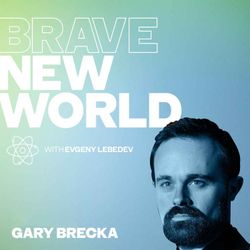
4. Gary Brecka on What's Wrong with Modern Medicine and the Secrets to a Longer Life
45:57||Season 4, Ep. 4For Episode Four, Evgeny is joined by human biologist, longevity science monolith and founder of The Ultimate Human, Gary Brecka. Together, they explore why so many people feel stuck at a “six out of ten,” what Gary believes to be the cause of fatigue, brain fog, poor sleep, soreness, low mood, and why poor exercise recovery is often driven by nutrient deficiencies.Gary shares his unconventional background as a mortality expert in life insurance, where he used massive datasets to predict lifespan with extreme accuracy. In the conversation, he challenges modern medicine’s tendency to label many chronic conditions as “familial” or “idiopathic” and details how to treat the most common gene mutation in the world, which is also Gary's bêtes noire: MHTF.We’d like to thank The Ultimate Human for providing the video clips featured in this episode. This episode was produced by Message Heard and The Standard.Producer: Florence de SchlichtingProduction Coordinator: James CoxProduction Manager: Kirsty McLeanVideo Editor: Nani WenaniThe Standard team: Joe BromleyWill Rogers-Coltman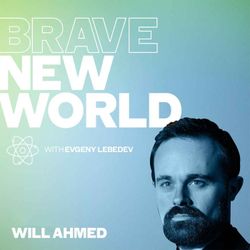
3. Will Ahmed on Perfecting Your Sleep Routine and Analysis Paralysis
37:55||Season 4, Ep. 3In Episode Three of Brave New World, Evgeny is joined by Will Ahmed, founder and CEO of WHOOP. Together, they explore recovery, sleep, and the idea that “you can’t manage what you don’t measure.” Ahmed explains how overtraining as a Harvard athlete led him to build his own wearable, identifying a major gap in health diagnostics at the time: measuring recovery, not just performance.He explains what WHOOP tracks - sleep quality, strain, heart rate variability (HRV), recovery, and stress; dives into why seven hours in bed can still mean poor sleep; and why consistency of bedtime and wake time often matters more than raw hours.Evgeny and Ahmed get practical on health trends, address the criticism that wearables culture a state of analysis paralysis and how to use metrics as a tool, not a verdict.This episode was produced by Message Heard and The Standard.Producer: Florence de SchlichtingProduction Coordinator: James CoxProduction Manager: Kirsty McLeanVideo Editor: Nani WenaniThe Standard team:Joe BromleyWill Rogers-Coltman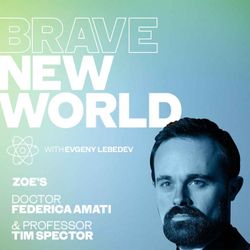
2. ZOE's Dr Federica Amati and Professor Tim Spector Debunk the Biggest Food Myths
48:00||Season 4, Ep. 2In this episode, Evgeny sits down with Professor Tim Spector and Dr Federica Amati - two of the leading scientific voices behind personalised nutrition company ZOE - to rethink everything we’ve been told about food.From the myth of “good” and “bad” fats to calorie-counting obsessions, Tim and Federica uncover why so much of our nutritional advice is outdated, over-simplified - and in some cases, actively harmful. They unpack how ultra-processed foods and constant snacking damage our gut, why breakfast is not magically the most important meal of the day, and how time-restricted eating might be the key to optimising your daily health.At the core of their discussion is a simple idea: eat for your gut microbes. This episode was produced by Message Heard and The Standard.Producer: Florence de SchlichtingProduction Coordinator: James CoxProduction Manager: Kirsty McLeanVideo Editor: Nani WenaniThe Standard team: Joe BromleyWill Rogers-Coltman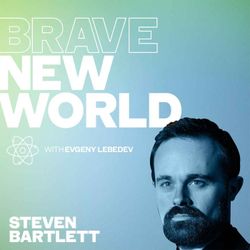
1. Steven Bartlett on How to Supercharge Your Company and Why He's Scared of an AI Apocalypse
01:24:16||Season 4, Ep. 1Welcome to the first episode of Season 4 of Brave New World.This time, Evgeny is joined by Steven Bartlett to talk about mindset, ambition and the future. He shares how he manages “a million tabs” without burning out, why self-empathy boosts performance, and how a humiliating paddle match taught him a breakthrough lesson on failure.He opens up about growing up in poverty and shame, the influence of his mum, and why the biggest entrepreneurial lesson he learned was simply: have an idea, then do it.Steven unpacks the thinking behind his book Just F**ing Do It, the neuroscience of hard things, his obsession with 1% gains, and why his company has a “Head of Failure.”The conversation expands to happiness, arrival fallacy, AI, humanoid robots, the future of work, the creator economy, and why he’d homeschool his future kids to double down on uniquely human skills.This episode was produced by Message Heard and The London Standard.Producer: Florence de SchlichtingProduction Coordinator: James CoxProduction Manager: Kirsty McLeanVideo Editor: Nani WenaniThe Standard team:Joe BromleyWill Rogers-Coltman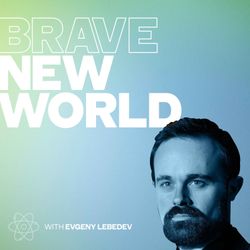
6. Dr John Krystal: Why ketamine can solve a mental health epidemic
01:13:35||Season 3, Ep. 6In today’s episode, Evgeny Lebedev talks about the remarkable potential of ketamine with Dr John Krystal, Professor of neuroscience at the Yale School of Medicine. Their discussion delves into the world of neurology, what ketamine actually does to our brain and the importance of glutamate receptors in treating depression. Ketamine may have gotten bad press after Friends actor Matthew Perry died of an overdose while receiving treatment with the drug, but for Dr Krystal, it is a critically overlooked solution to the epidemic of mental illness.Also in this episode:Ketamine’s complicated history starting in the 1950sThe real reason depression leads to suicideWhy ketamine is effective at dealing with traumaThe detailed procedure of ketamine therapy The importance of ketamine’s “narrow window” dosageKetamine’s reputation and why it needs to change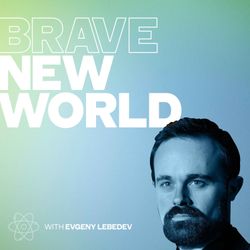
5. Dr Peter Attia: Medicine 3.0
53:48||Season 3, Ep. 5In today’s episode, we are excited to be joined by Peter Attia: a longevity expert, physician, and bestselling author. Peter’s podcast, The Drive, is one of the most popular in the world. Through it, he’s brought cutting edge science to the masses, sharing tips and tricks, some of which are still experimental, on how to boost your chances of ageing well. Tune into Peter and Evgeny’s conversation on what the former calls “Medicine 3.0” — his blueprint for good health — and how happiness is essential to longevity, not just a bonus. “It doesn’t matter how healthy you are,” Peter says, “if the most important relationships in your life are not happy.” Topics covered include: The difference between health span and lifespanHow AI can revolutionise clinical trials and the development of new medicines How to regulate glucose levelsTips to reducing caloric intakeWhy cancer immunity is under-researchedHow to prevent heart diseaseDebunking the biggest myths around nutrition